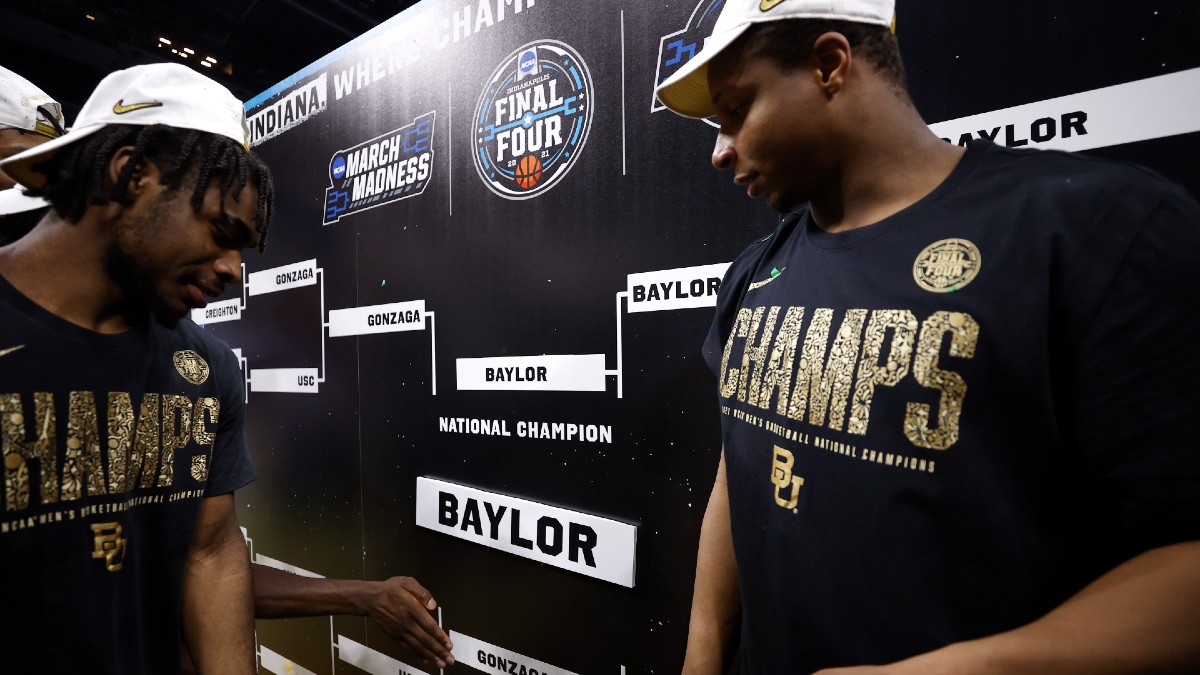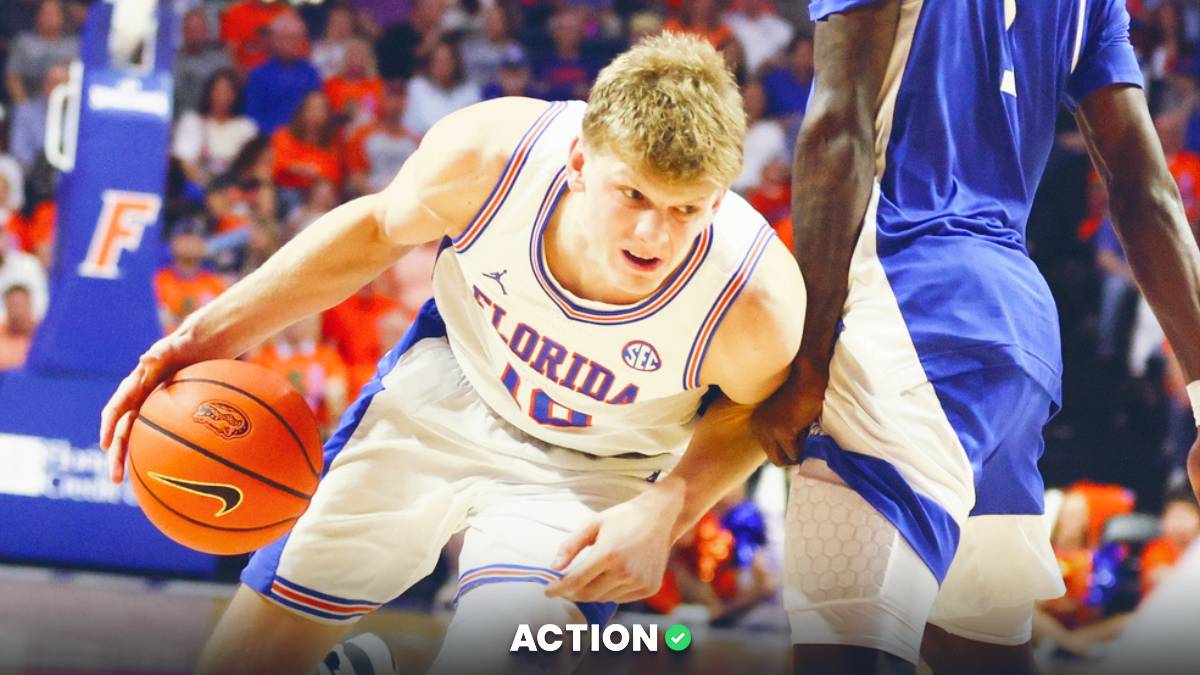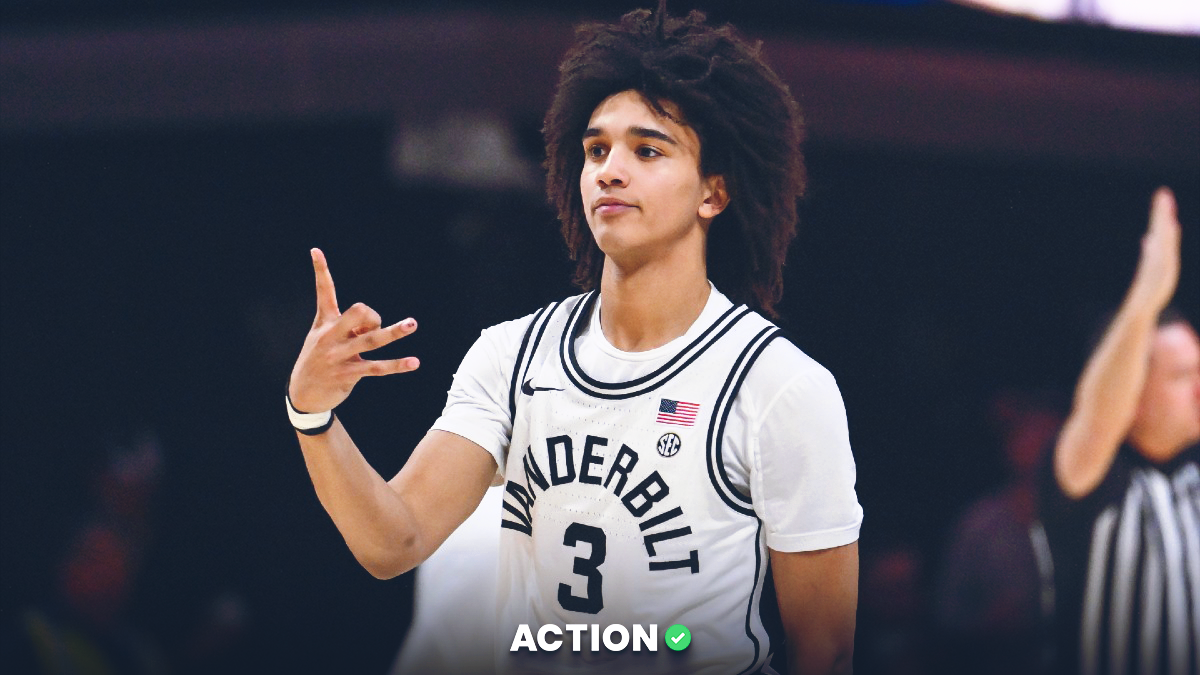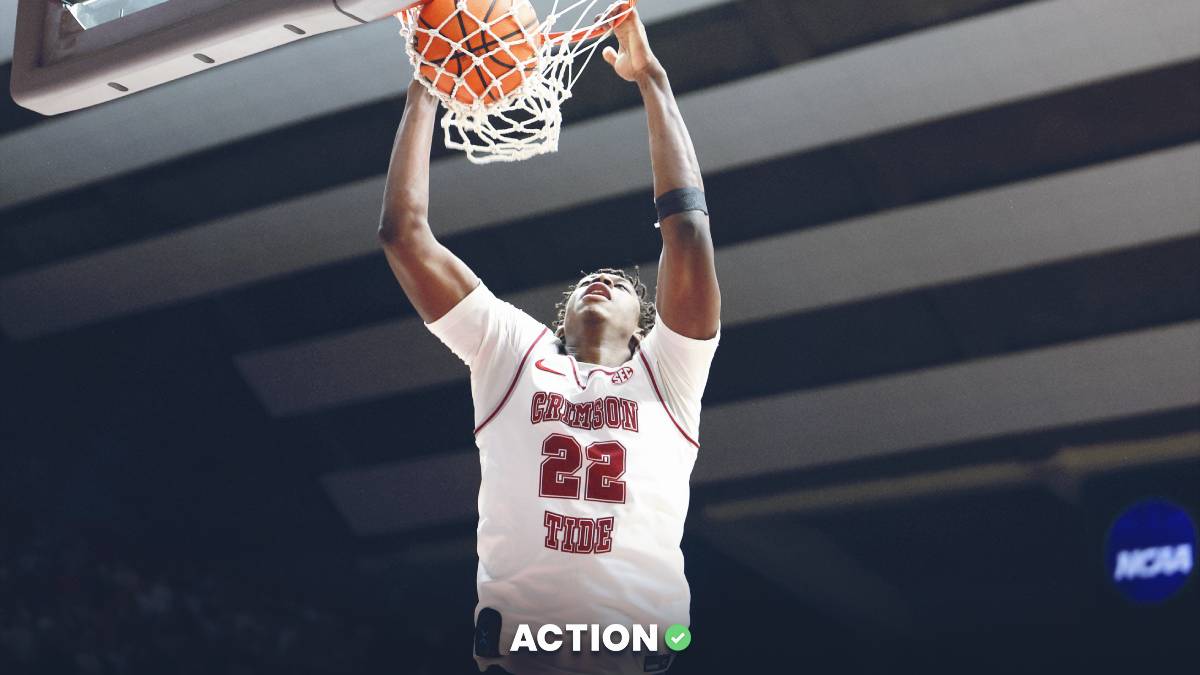This is a guest post from TeamRankings.com, which has helped subscribers win over $1.75 million in bracket pools since 2017.
They've built the only bracket optimizer tool that gives you the best chance to win your pool.
Action Network readers can learn more and get a special 15% discount here: 2022 NCAA bracket picks from TeamRankings.
The failure to understand how your bracket pool’s scoring system should influence pick strategy might be the biggest mistake that unskilled bracket pickers make. If you want to win your 2022 NCAA Tournament bracket pool, the first thing you need to do is understand the rules.
To start things off, let's forget about bracket pools for a minute and think about another game: college basketball. Even if you're clueless about NCAA bracket strategy, you probably know that in college hoops, a made shot is worth two points and a free throw is worth one. The one exception is a made shot from behind the three-point line, which is worth 50% more (aka, three points).
Now let's think about the strategy implications of that scoring system. Here's one. If the defense leaves you wide open and you willingly take a shot from two inches inside the three-point line, you're a numbskull. Compared to just stepping just a few inches back, you're taking a similar risk of missing the shot, but the reward if you hit the shot is much lower.
To get an edge in your 2022 bracket contests, you need to analyze the game in similar ways.
Traditional Bracket Pool Scoring
The traditional bracket pool scoring system awards the following number of points for a correct pick in each successive round: 1-2-4-8-16-32. The primary implication of that system is that the highest leverage picks come in the later rounds.
Even though each round offers the same amount of points available to score (32), the distribution of possible outcomes becomes more extreme in the later rounds. Consequently, how your bracket performs in the Final Four games and beyond will almost certainly have a bigger impact on determining whether you win the pool, compared to your performance in early round games.
The Importance Of Late Round Picks
Consider the First Round, which consists of 32 games each worth one point. With that many games to pick, the law of large numbers begins to kick in, meaning that it's all but impossible to get all 32 picks right (or wrong). At the end of the round, most players will have gotten most picks right, with a few especially good and bad outliers mixed in thanks to luck.
As a result, the difference between a relatively great First Round and a relatively terrible First Round is likely to be decided by a handful of points. When the dust settles, Great Aunt Bev's 26 correct picks might put her near the top of your pool standings, while your picks missing four more games and scoring only 22 points lands you nearer to the bottom.

In absolute terms, though, that's a difference of only four points.
In comparison, Final Four picks in the traditional scoring system are worth eight points each. Get just one more Final Four pick correct than Great Aunt Bev does, and you've more than erased the setback of your bad First Round. Get two more Final Four picks right than she does, and you're now plus-16 on her for the round. That's a potentially insurmountable difference with only three games left to play.
Granted, getting two more Final Four picks right than one of your opponents isn't easy. But it's a far more realistic outcome than scoring 16 more points than they do in the First Round.
In the 1-2-4-8-16-32 bracket pool scoring system, you’re probably not going to win your pool unless you make some late-round picks that come through, no matter how you perform in the First Round. So in the limited amount of time between Selection Sunday and the start of the 64-team bracket on Thursday, focus on optimizing your picks for the final few rounds.
Agonizing over First Round upset picks may be fun, but in terms of impacting your odds to win your pool, it's almost certainly a waste of time.
Non-Traditional Scoring Systems
What if they changed the rules for college basketball, and made layups from the left side of the key (but not the right) suddenly worth five points instead of two?
In that case, you would expect any smart coach to completely revamp their team's offensive and defensive strategies. They would design almost all offensive plays to get a shooter open on the left side of the court, and the resulting game would look much different (and kind of weird) to spectators used to the old way of playing.
Rules changes of similar magnitude to this last basketball example actually occur fairly often from bracket pool to bracket pool. Yet many players don't fully appreciate the strategy implications. In effect, they still keep shooting a bunch of shots from the right side of the key. It's what they're used to, and besides, only shooting from the left side just feels weird.
In non-traditional scoring systems, you can get a huge edge over your bracket pool opponents if you are able to banish your preconceptions of what a bracket should look like, and let the rules dictate the strategy. It's a psychological challenge as much as anything else.
Flatter Scoring Systems
One fairly common alternative scoring system awards 1-2-3-4-5-6 points per pick, by round. That's a much flatter reward structure than 1-2-4-8-16-32, so your pick strategy should be very different in those pools. Although the First Round is still worth a total of 32 points, getting an NCAA finalist correct (which is difficult to do in the first place) is only worth five points, barely more than getting a Sweet 16 pick right in the traditional system.
Another scoring system popular in basketball nerd circles is the Fibonacci sequence, or 2-3-5-8-13-21, which is named after a badass 13th century Italian mathematician. (Shoutout to Daryl Morey, President of Basketball Operations for the Philadelphia 76ers and one of our longtime subscribers, who swears by this system and loves all things geeky.)
Both in Fibonacci and especially in 1-2-3-4-5-6, early round pick performance is more likely to be a difference-maker in determining the pool’s eventual winner. So it generally pays to be more aggressive making contrarian picks in the earlier rounds.
From a strategy perspective, the worst case scenario of making a bold First Round or Second Round upset pick in the traditional scoring system is not that you get the pick wrong. After all, those picks are only worth one or two points each, an amount that is unlikely to cause a big swing in the final standings.
The scenario that stings far more — and that has the realistic possibility of busting your entire bracket — comes when you eliminate a good team early, and that team ends up making a deep run and scoring a lot of points for your opponents.
When late-round games are worth 16x or 32x as much as First Round games, picking even just a few big early round upsets can significantly decrease your odds to win your pool. In flatter scoring systems, though, that risk multiplier decreases, and the worst case scenario of a bolder early-round strategy gets (for lack of a more elegant phrase) less worse.
Upset Bonus Pools
Finally, if your bracket pool offers bonus points for correctly picking seed-based upsets (or more generally, for picking lower-seeded teams to advance), strategy changes yet again.
Over the past 20 years, we’ve run millions of computer simulations of NCAA bracket contests, and we've studied the performance of many different pick strategies in tens of thousands of real-world pools. The results clearly demonstrate one thing. Most players in upset bonus pools aren’t nearly as aggressive as they should be when it comes to making bold picks.
In upset bonus pools, optimal pick strategy tends to produce a bracket that looks downright insane to an unskilled bracket picker, especially in the earlier rounds. When most people take a look at the brackets we recommend for upset pools, their reaction varies between shock and outright ridicule. “Look at all these double digit seeds in the Sweet 16!" they exclaim while coughing up their Sunny D. "That’s absurd! It has never happened! IT WILL NEVER HAPPEN!”

You really want those types of people in your upset bonus pool, because they display a fundamental misunderstanding of bracket strategy.
The goal is not to try to pick a perfect bracket, in terms of trying to match exactly what ends up happening in the 2022 NCAA Tournament. (The odds of succeeding there are infinitesimally low and you're never going to do it anyway.)
Rather, the goal is to identify the calculated risks you need to take to have the best chance to outscore all of your opponents. Those are two different things.
What It Means To Take Calculated Risks
In upset bonus pools, maximizing your odds to win the pool often translates to employing a portfolio strategy for making upset picks, a tried-and-true means of diversifying risk borrowed from the financial markets. The good news is that you get a lot of points for correctly picking a big upset. The bad news is that your odds of picking a particular big upset that actually happens are low. So you take a shotgun approach to balance risk and reward in the best way.
Consider a traditional scoring system that also awards upset bonus points based on seed difference, which is a popular option. In that system, correctly picking a No. 13 seed to beat a No. 4 seed in the First Round is worth 10 points (one point for the First Round win plus nine bonus points for seed difference). That point total is more than you score for correctly picking a Final Four team (eight points), assuming one of the top seeds makes it.
It's also 10 times the number of points you score for correctly picking the No. 4 seed to beat the No. 13 seed. That's a huge reward, given that No. 4 seeds don't have anywhere near 10 times the chance to win these First Round games.
Remember the basketball scoring analogy? This seed difference upset bonus system is akin to making a 3-pointer suddenly worth 20 points instead. If you want to win more games, you better start shooting the hell out of them.
Yes, a Sweet 16 that features a majority of double-digit seeds has never happened. Yes, it almost certainly won't happen in 2022. We know all that going in. The fact remains that picking all four No. 13 seeds to win in the First Round, and going a measly 1-for-4, results in 10 points.
Picking all the No. 4 seeds to win and going a perfect 4-for-4 may sound great on paper, but it results in only four points—less than half as much.
As long as you don't think any of those No. 4 seeds have a great chance to make a deep run in the tournament, picking all four of them to lose straightaway can make plenty of mathematical sense. In upset bonus pools, you don't need a crazy first-time-in-history type of outcome to happen in order to win, but you often do need to pick a bracket that looks like one.
The Best Bracket For Your Pool
Before we wrap up, it's worth noting one last thing. Although understanding the implications of your bracket pool's scoring system is critical for maximizing your edge, it's still just one aspect of bracket pick optimization.
Other factors, including the size of your pool and its payout structure, play a big role in determining the bracket that gives you the best chance to win a prize. You also need access to the best data you can find, such as accurate round-by-round advancement odds and pick popularity estimates, so that you can identify the most undervalued teams.
It's certainly not easy or quick to gather all this data and figure out how to apply the various elements of optimal bracket strategy to your own brackets. There's a lot of math involved, and doing it the best way can't be done by hand or in some Excel spreadsheet.
That's why we built the world's first bracket optimizer tool. You provide a few key details about your March Madness pool, and based on the results of millions of simulations of similar pools, you get a ready-to-play bracket that gives you the best chance to win. (The technology is so sophisticated, it was even featured in WIRED Magazine.)
Most importantly, it works. Since 2015, an average of 57% of our subscribers have reported winning a bracket pool prize each year.
The product also includes comprehensive tournament predictions, stats, and team research, and even tools for competing in NCAA survivor and Calcutta pools. In short, it's your secret weapon for March Madness 2022.
Just click below to get picks now:
NCAA Bracket Picks from TeamRankings.com























































